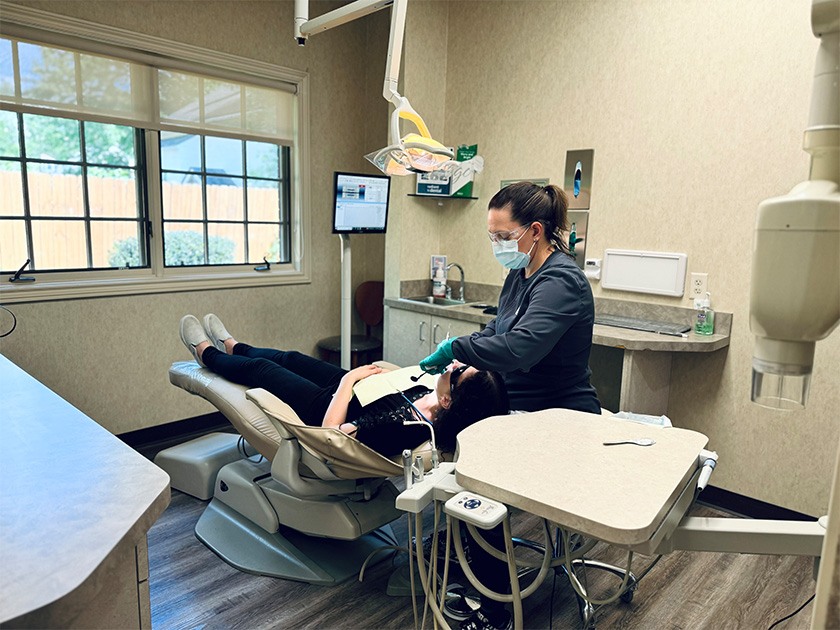
Cavities are never fun, but the ones that form between your teeth (also called interproximal cavities) can be especially sneaky. Since they’re hidden from plain sight, many people don’t realize they have one until it starts causing discomfort—or worse, spreads further. So how can you tell if you have a cavity between your teeth, and what can you do to prevent it?
What Causes Cavities Between Teeth?
Just like surface cavities, interproximal cavities are caused by plaque buildup. When food particles and bacteria collect between teeth—areas that can be harder to clean—acid begins to erode the enamel. Over time, this creates small holes in the tooth structure, which can worsen without proper treatment.
These cavities are more common in people who:
- Don’t floss regularly
- Eat a diet high in sugar or acid
- Have a dry mouth or reduced saliva flow
- Skip regular dental cleanings
Unfortunately, you often can’t see or feel these cavities until they’ve become a problem.
Signs You Might Have a Cavity Between Your Teeth
Because interproximal cavities are hidden, they usually aren’t visible in the mirror. However, there are a few signs that might indicate one is developing:
- Tooth sensitivity: Do you feel a sharp pain or sensitivity when eating hot, cold, or sweet foods? That could be a red flag.
- Bad breath or a bad taste: Persistent bad breath can be caused by trapped food and bacteria between your teeth.
- Pain when biting down: If chewing creates discomfort in a specific area, there may be decay hiding between the teeth.
- Swollen or bleeding gums: This may not always mean a cavity, but it does signal an issue between the teeth that needs attention.
Still, the only way to know for sure is with a dental exam and X-rays.
How Cavities Between Teeth Are Diagnosed and Treated
Dentists use bitewing X-rays to detect cavities between teeth. These images allow them to spot decay that can’t be seen with the naked eye. If a cavity is caught early, it can often be treated with a simple filling. But if decay has progressed, you might need a more involved treatment such as a crown or root canal.
Delaying treatment can lead to more extensive tooth damage, infections, or even tooth loss—so it’s always best to act early.
How to Prevent Cavities Between Teeth
The best defense is a strong oral hygiene routine. Here’s what you can do:
- Floss daily: This is the #1 way to remove plaque between teeth where your toothbrush can’t reach.
- Brush twice a day with fluoride toothpaste
- Visit your dentist regularly for cleanings and exams
- Cut back on sugary and acidic snacks and drinks
- Drink plenty of water to keep your mouth clean and your saliva flowing
Catch Problems Before They Start
Cavities between your teeth may be out of sight, but they shouldn’t be out of mind. Staying proactive with your dental hygiene and regular checkups is key to keeping your smile healthy and cavity-free.
About the Practice
Radiant Dental provides expert preventive and restorative dental care to families in and around Farmington Hills, MI. Dr. Saywa and our friendly team are passionate about helping patients maintain healthy, confident smiles. Whether you need a routine cleaning or treatment for a cavity, Radiant Dental offers personalized care for every patient.
Call us at (248) 855-4850 or schedule your appointment online.


